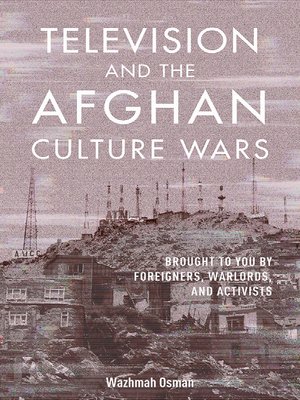Television and the Afghan Culture Wars
ebook ∣ Brought to You by Foreigners, Warlords, and Activists · The Geopolitics of Information
By Wazhmah Osman

Sign up to save your library
With an OverDrive account, you can save your favorite libraries for at-a-glance information about availability. Find out more about OverDrive accounts.
Find this title in Libby, the library reading app by OverDrive.



Search for a digital library with this title
Title found at these libraries:
| Library Name | Distance |
|---|---|
| Loading... |
Fieldwork from across Afghanistan allowed Osman to record the voices of many Afghan media producers and people. Afghans offer their own seldom-heard views on the country's cultural progress and belief systems, their understandings of themselves, and the role of international interventions. Osman analyzes the impact of transnational media and foreign funding while keeping the focus on local cultural contestations, productions, and social movements. As a result, she redirects the global dialogue about Afghanistan to Afghans and challenges top-down narratives of humanitarian development.
|AcknowledgmentsIntroduction
Chapter 1. Legitimizing Modernity: Indigenous Modernities, Foreign Incursions, and Their Backlashes
Chapter 2. Imperialism, Globalization, and Development: Overlaps and Disjunctures
Chapter 3. Afghan Television Production: A Distinctive Political Economy
Chapter 4. Producers and Production: The Development Gaze and the Imperial Gaze
Chapter 5. Reaching Vulnerable and Dangerous Populations: Women and the Pashtuns
Chapter 6. Reception and Audiences: The Demands and Desires of Afghan People
Conclusion: The Future of Media, the Future of Afghanistan
Appendix A: Ethnic Groups Table
Appendix B: Media Funding Sources and Recipients Table
Appendix C: TV Stations and Affiliations Table
Notes
References
Index| ICA ACJS Outstanding Book Award, 2021 — ICA ACJS Outstanding Book Award
|Wazhmah Osman is a filmmaker and assistant professor in the Klein College of Media and Communication at Temple University. She is the codirector of the critically acclaimed documentary Postcards from Tora Bora and the coauthor of Afghanistan: A Very Short Introduction.







